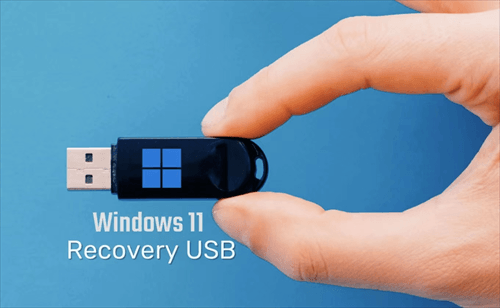
- #Create a mac os recovery usb from a winows pc install
- #Create a mac os recovery usb from a winows pc upgrade
- #Create a mac os recovery usb from a winows pc password
If Disk Utility can’t repair your disk, back up as much of your information as possible, then follow the instructions in Erase and reinstall macOS.

In the sidebar, select the storage device, then click the First Aid button. Repeat steps 7 to 9 for each container on the storage device. In the sidebar, select a container, then click the First Aid button. Repeat steps 3 to 5 for each volume on the storage device. When the First Aid process is complete, click Done. In the First Aid dialogue, click Run, then follow the onscreen instructions. In the sidebar, select a volume, then click the First Aid button. In the Disk Utility app, choose View > Show All Devices. In the Recovery app, select Disk Utility, then click Continue. If you have issues with your computer or if you started your computer and the macOS Recovery window appeared, you may need to repair your computer’s internal storage device (such as a solid-state drive (SSD)). When the Recovery app appears in the menu bar, you can choose any of the available options in the window or the menu bar.
#Create a mac os recovery usb from a winows pc password
If requested, choose an administrator account, click Next, enter the password for the account, then click Continue. If you have multiple volumes on your disk, select the volume you want to recover, then click Next. If you see a lock, enter the password for your Mac. Use this key combination to reinstall the version of macOS that came with your Mac or the closest version that’s still available. Option-Shift-Command-R: Start up from macOS Recovery over the internet.
#Create a mac os recovery usb from a winows pc upgrade
Use this key combination to reinstall macOS and upgrade to the latest version of macOS that’s compatible with your Mac. Option-Command-R: Start up from macOS Recovery over the internet. Use this key combination to reinstall the latest macOS that was installed on your system, or to use the other apps in macOS Recovery. Immediately press and hold one of the following key combinations until you see the startup screen:Ĭommand-R: Start up from the built-in macOS Recovery System. You can also use macOS Recovery to do the following: To return to the Recovery app, choose Terminal > Quit Terminal. Terminal: In the Recovery app, choose Utilities > Terminal. To return to the Recovery app, choose Startup Disk > Quit Startup Disk. Startup Disk: Set the startup disk for your Mac. See the Apple Support articles About Startup Security Utility on a Mac with the Apple T2 Security Chip and Mac models with the Apple T2 Security Chip. The options available in Startup Security Utility vary depending on your Mac model. See Use Startup Security Utility to set a firmware password and Use Startup Security Utility to set secure boot options. To return to the Recovery app, choose Startup Security Utility > Quit Startup Security Utility. In the Recovery app, choose Utilities > Startup Security Utility. Startup Security Utility: Set the security policies for your Mac. To return to the Recovery app, choose Disk Utility > Quit Disk Utility. Note that Safari browser plug-ins and extensions are disabled in macOS Recovery.ĭisk Utility: Repair or erase your disk. If you’re connected to the internet, you can use Safari to search for more information on the Apple Support website. To return to the Recovery app, choose Safari > Quit Safari. Safari: In the Recovery app, select Safari, then click Continue.
#Create a mac os recovery usb from a winows pc install
To return to the Recovery app, choose Install macOS Sonoma > Quit Install macOS. In the Recovery app, select Reinstall macOS Sonoma, then click Continue. Install macOS: Reinstall macOS on your computer. See Use Time Machine to restore your files. To return to the Recovery app, choose Time Machine System Restore > Quit Time Machine System Restore. In the Recovery app, select Restore from Time Machine, then click Continue. Time Machine System Restore: Restore your data from a Time Machine backup. See Start up your Intel-based Mac in macOS Recovery and Quit macOS Recovery. Recovery: The Recovery app opens when your computer starts up in macOS Recovery. The following apps are available in macOS Recovery on an Intel-based Mac:

Get started with accessibility featuresĪpps available in macOS Recovery on an Intel-based Mac.Use Sign in with Apple for apps and websites.Watch and listen together with SharePlay.

Share and collaborate on files and folders.Sync music, books and more between devices.Make and receive phone calls on your Mac.Use one keyboard and mouse to control Mac and iPad.Use Live Text to interact with text in a photo.Make text and other items on the screen bigger.Install and reinstall apps from the App Store.


 0 kommentar(er)
0 kommentar(er)
